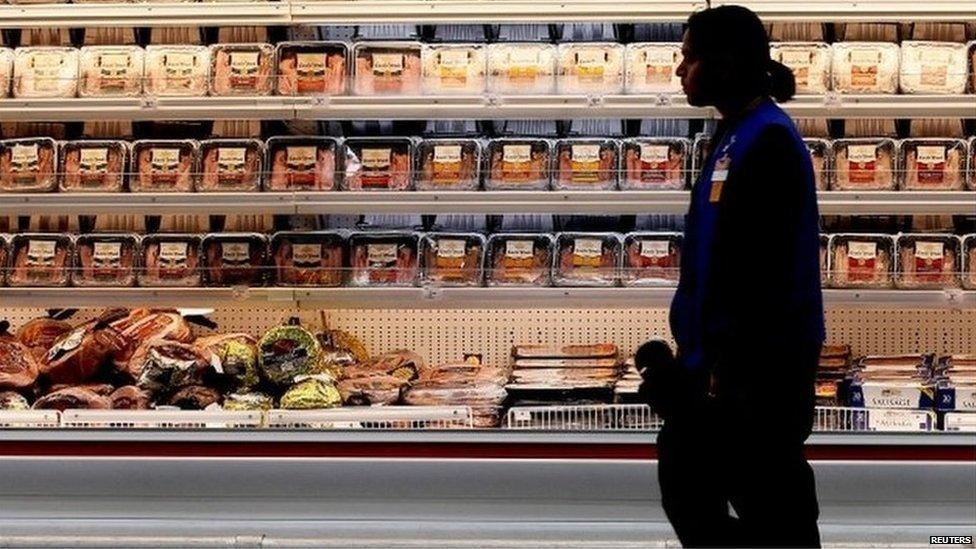UK-US trade deal: Envoy attacks 'myths' about US farming
- Published
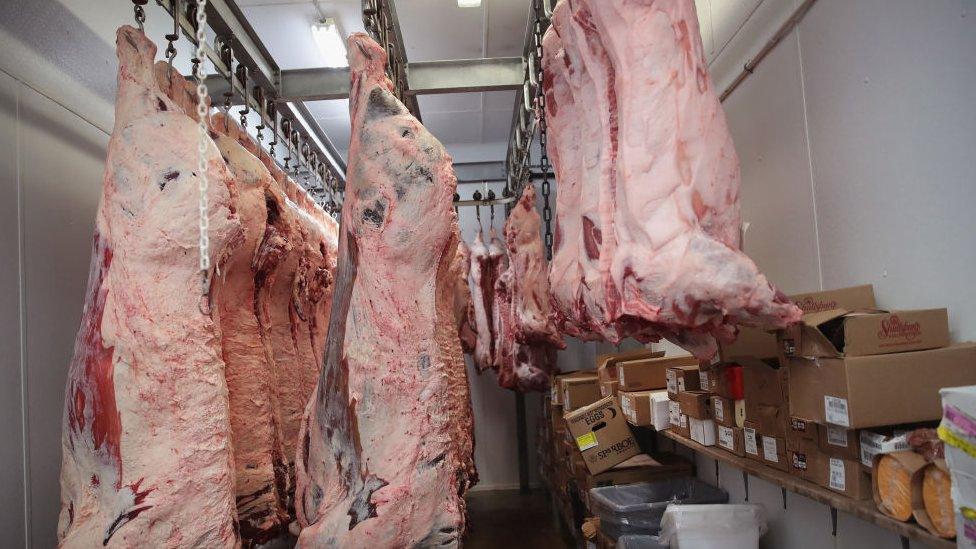
Fears over chlorine-washed chicken and hormone-fed beef are "myths", according to the US ambassador to the UK.
In the Daily Telegraph, external, Woody Johnson urged the UK to embrace US farming methods after Washington published its objectives, external for a UK-US trade deal.
EU rules currently limit US exports of certain food products, including chicken and beef - but Mr Johnson wants that to change in the UK after Brexit.
Downing Street has repeatedly denied it will accept lower food standards.
A No 10 spokeswoman said: "We have always been very clear that we will not lower our food standards as part of a future trading agreement."
Mr Johnson, however, described warnings over US farming practices as "inflammatory and misleading" smears from "people with their own protectionist agenda".
He also said the EU's "Museum of Agriculture" approach was not sustainable, adding: "American farmers are making a vital contribution to the rest of the world. Their efforts deserve to be recognised.
"Instead, they are being dismissed with misleading scare-stories which only tell you half the story."
On chlorine-washed chicken, Mr Johnson said the process was the same as that used by EU farmers to treat their fruit and vegetables.
Describing it as a "public safety no-brainer", he insisted it was the most effective and economical way of dealing with "potentially lethal" bacteria such as salmonella and campylobacter.
'Welfare standards'
President of the UK's National Farmer's Union (NFU) Minette Batters said that while Mr Johnson was correct in saying chlorine-washed chicken and hormone-fed beef was "safe" to eat, there were other factors that needed considering.
"The difference is welfare standards and environmental protection standards," she told BBC Radio 4's Today programme.
"Our consumer has demanded high standards of animal welfare, we've risen to that challenge - he's right to make the point that food security is crucially important, we would say the same - but all we're saying is: 'Produce the food to our standards and we'll have a trade deal.'"
Ms Batters said chicken farms in the US were not required, for example, to include windows in their sheds or clean out in between flocks.
The US National Farmers' Union has always maintained that its chicken and beef, which use processes banned by the EU, are "perfectly safe" and argues there has been a lot of "fear-mongering".
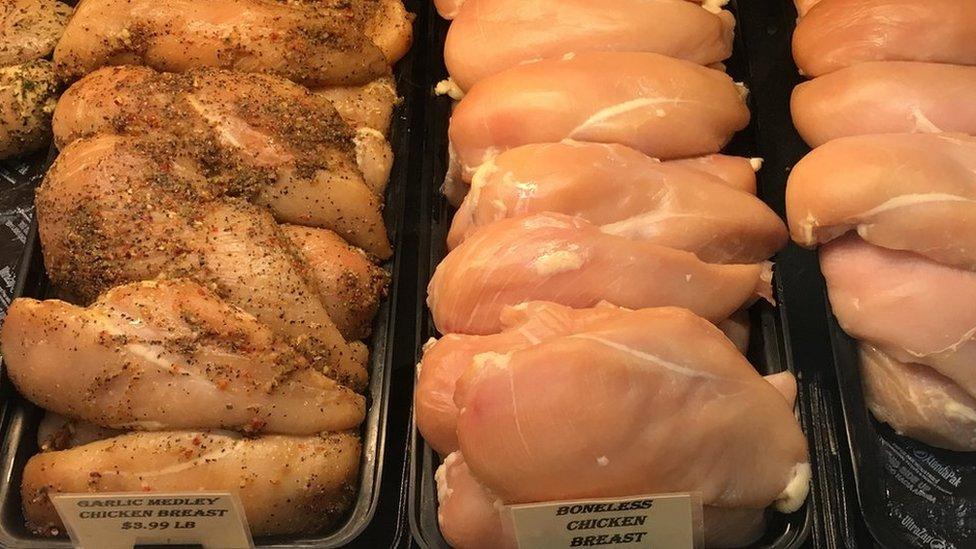
The US wants the UK to import more of its farm produce
However, its British counterpart said the UK government should not accept a US deal "which allows food to be imported into this country produced in ways which would be illegal here".
That, Ms Batters said, "would just put British producers out of business".
Amy Mount from Greener UK, an environmental lobby group, said: "This wish-list shows that a hard-Brexit pivot away from the EU in favour of the US would mean pressure to scrap important protections for our environment and food quality.
"Any future trade deals should reflect the high standards that the UK public both wants and expects."
Despite the NFU's insistence that consumers are keen to maintain the current welfare standards in farming, Ms Batters said there was a possibility the UK would give in to the US.
She said: "There's always been the risk - and agriculture has always been the last chapter in any trade deal to be agreed - so yes there is a huge risk that British agriculture will be the sacrificial lamb in future trade deals."
Meanwhile, Dr Emily Jones, who is an associate professor of public policy at the Blavatnik School of Government at the University of Oxford, also said the issue was likely to be a sticking point for the US.
"I think the US won't buy it in negotiations with the UK," said Dr Jones, referring to the UK's insistence on maintaining its current standards.
"It's wanted, for a very long time, the EU to harmonise with US regulations and approaches to the production of food and it's exactly what it'll ask of the UK as well."

What is chlorine-washed chicken?
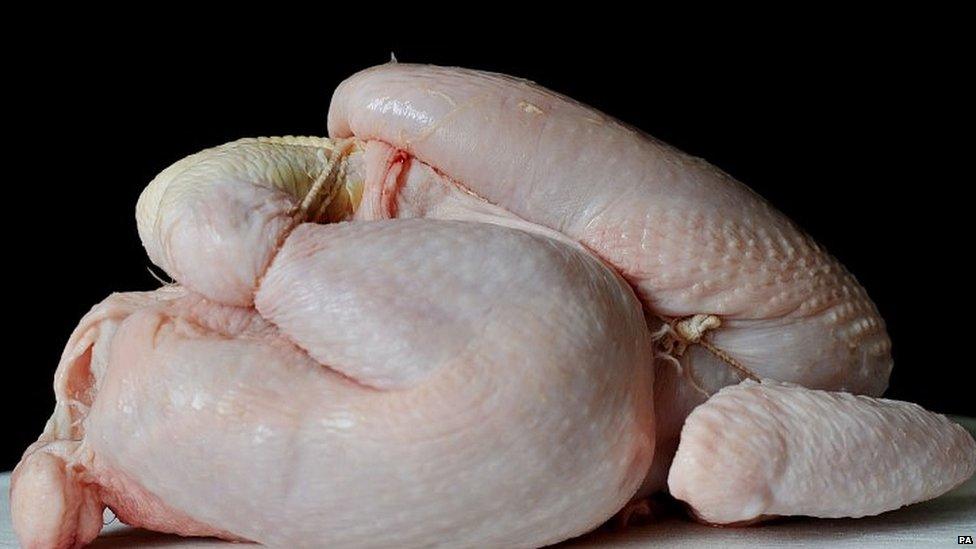
In the US, it is legal to wash chicken carcasses in strongly chlorinated water.
Producers argue that it stops the spread of microbial contamination from the bird's digestive tract to the meat, a method approved by US regulators.
But the practice has been banned in the EU since 1997, where only washing with cold air or water is allowed.
The EU argues that chlorine washes could increase the risk of bacterial-based diseases such as salmonella on the grounds that dirty abattoirs with sloppy standards would rely on it as a decontaminant rather than making sure their basic hygiene protocols were up to scratch.
There are also concerns that such "washes" would be used by less scrupulous meat processing plants to increase the shelf-life of meat, making it appear fresher than it really is.

- Published1 March 2019
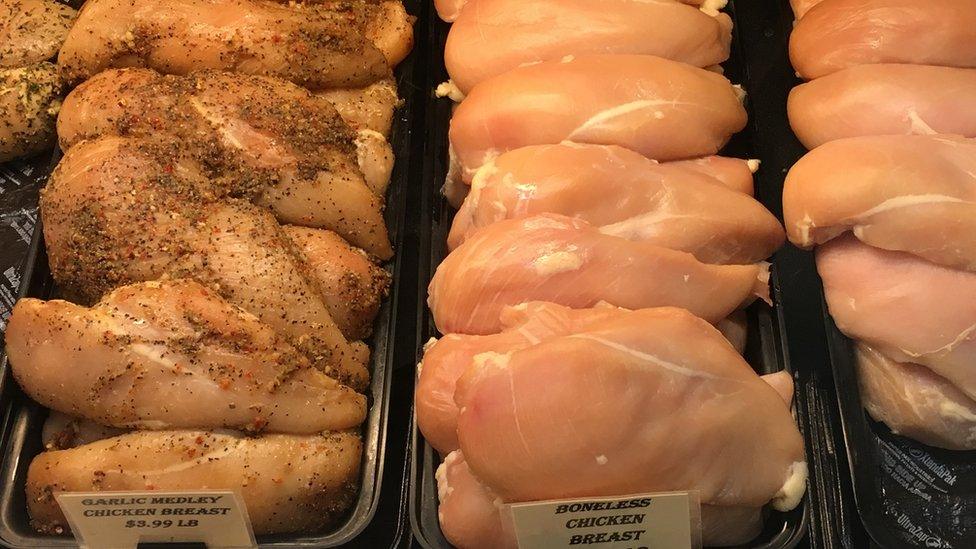
- Published29 January 2019
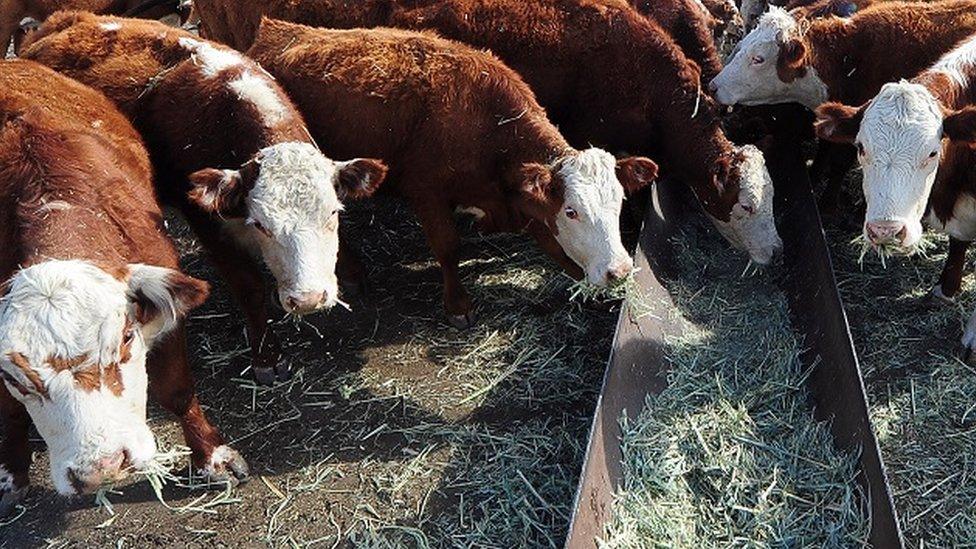
- Published3 January 2019
